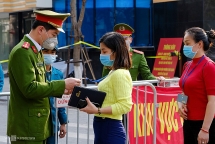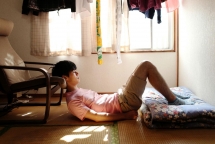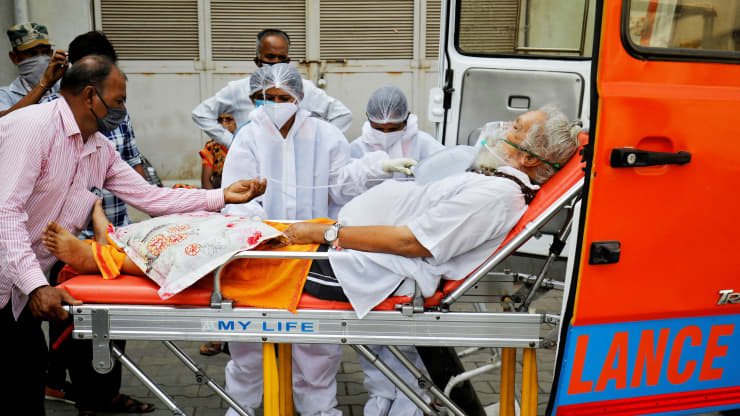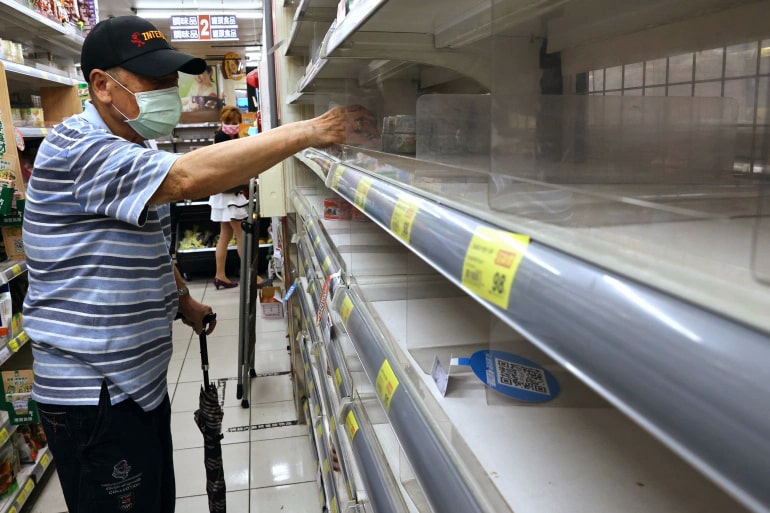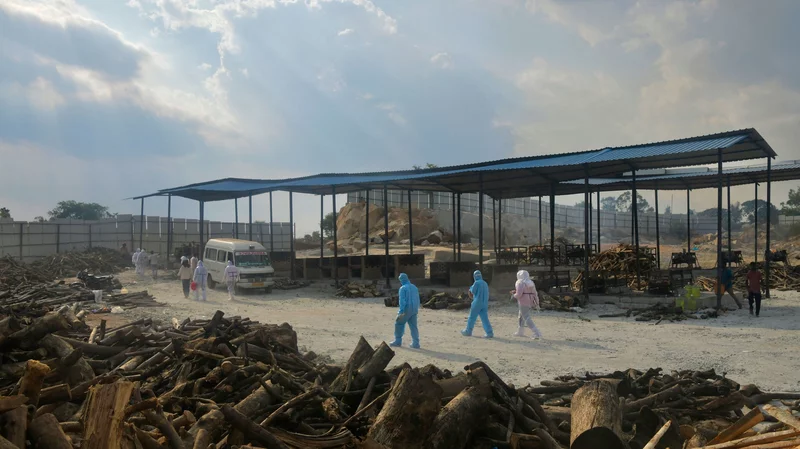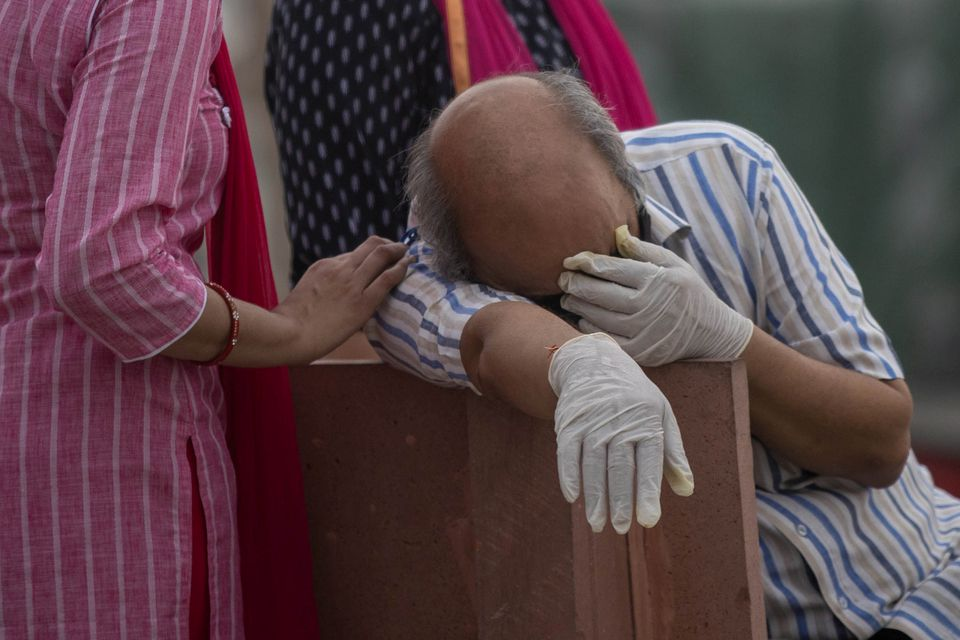Self-isolated guidance for Coronavirus in Sweden and the ways you do.
| Coronavirus: Arsenal players in self-isolation as Man City match postponed | |
| Observing people in isolated area after COVID-19 | |
| Pictures Reveal the Isolated Lives of Japan’s Social Recluses |
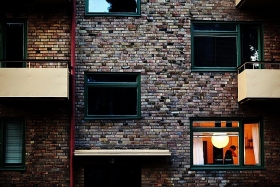 |
| The goal of self-isolation is to reduce the risk of spreading infection. Photo: Linda Forsell / SvD / SCANPIX |
What is self-isolation?
First of all, it helps to understand this term which can sound dramatic but simply refers to taking precautions to minimise the spread of infection. Self-isolation means staying inside and avoiding contact with other people. It’s different from a quarantine because it’s up to the individual to ensure they follow it.
If you live with other people, if possible you should stick to your own part of the accommodation, ideally not sharing a bedroom or bathroom with other people and staying one metre away from others in shared living spaces.
If those measures aren’t possible, for example in shared homes with only one bathroom, you should use the bathroom and kitchen after the people you live with, and check with a healthcare professional as to whether all occupants of the home should self-isolate.
You should avoid going to home, school, or any other public place, avoid using public transport, and even avoid having visitors to your home. You can have meals and groceries delivered, either by friends or family or delivery services, but these should be left outside your door.
While self-isolating, it’s important to maintain a high level of hygiene. That means regular and thorough hand-washing, regular washing of items like cutlery, cups, towels and bedding, and wiping down frequently touched surfaces like door handles and eating surfaces quite often. But try not to worry about this excessively; the most important thing is avoiding contact with other people.
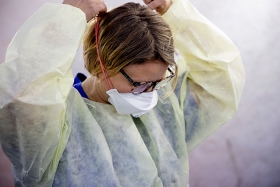 |
| (Photo: Adam Ihse/TT on local.se) |
Who should self-isolate in Sweden?
The guidelines from Swedish authorities on this have been less strict compared to some other European countries. The official advice from the Public Health Agency is that people who do not have any of the symptoms of the virus (including a fever or cough, however mild) can continue their lives as normal.
If you have recently travelled to a high-risk area and feel at all unwell, you should call Swedne's health helpline on 1177 to get medical advice. You may then be told to self-isolate. The advice is that if you are mildly ill with the virus and do not need hospital care, you should self-isolate.
This is consistent with advice from the European Centre for Disease Control, which advises those who have travelled to high-risk areas to monitor their health for 14 days after returning and avoid contact with others if they have any symptoms.
Others who are worried about their health, for example if you belong to a high-risk group or if you have symptoms consistent with the virus even if you have not recently travelled, can also ring 1177 and ask for advice.
One reader of The Local who has an autoimmune disorder said she had chosen to stay home from her job at a school after staff informed her that students would be coming into school after travelling to high-risk areas such as northern Italy.
"The response I have received from the majority of agencies is 'work from home'. It might be easy to do that for most Stockholmers, but not if you're a teacher," she commented.
Some individual schools and workplaces have introduced their own rules, with many requiring that people who return from travel to affected areas stay at home for 14 days after their return, whether or not they have symptoms, and others extending that requirement to anyone with respiratory symptoms.
Speak to your HR department or manager to find out what applies to you. Your workplace or school cannot require you to self-isolate; they can only ask that you stay away from the workplace or school itself.
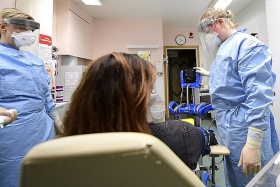 |
| (Photo: Adam Ihse/TT on thelocal.se) |
What about work?
The extent to which your work may be affected by self-isolation depends a lot on what your job is. If you think you need to self-isolate, speak to your manager as soon as possible and keep them updated on your progress while you’re at home.
In many professions, it may be possible to work from home and companies not just in Sweden but globally are being more lenient about work-from-home policies in the context of the coronavirus, or even making it mandatory for employees.
Working from home of course isn't the same as self-isolation; you might work from home and continue to leave your house and socialise regularly. For people who aren't suspected of having the virus, or at high risk from it if they were to catch it, working from home can still be a way to reduce your risk of contributing to its spread. It means that you'll be in close contact with fewer people by removing yourself from the workplace and public transport at peak times.
Home-working might not be possible in your job though, for example if you’re a teacher, nurse, or electrician. If that’s the case but you have a strong case for self-isolation -- for example, if you’ve recently been in a high-risk area and your work brings you into contact with vulnerable people, or if you yourself belong to a vulnerable group -- speak to your employer about your options. If you’re a member of a trade union you can also ask them for advice and support.
If employers require you to stay at home, you are entitled to your salary, whether or not you can carry out your work from home. And if you are confirmed to be infected by the coronavirus, you’re entitled to a benefit called disease carrier allowance if you’re well enough to work (you also receive this benefit if you are suspected to have the virus), or to standard sick pay if you’re too ill to work.
What steps can I take to prepare for and cope with self-isolation?
The key things are keeping in contact with your manager, if you're an employee, and ensuring your accommodation is well set up for self-isolation if possible, which might mean moving some of your belongings from shared areas to your bedroom or taking other steps to help you follow the measures outlined above.
You might want to make sure your kitchen is well-stocked with enough food for a week or two, but even this isn't essential. Swedish authorities generally recommend keeping enough food for two weeks at home as a way of being prepared for different kinds of emergency, but you can still receive deliveries of food during self-isolation.
Don’t forget your mental health. Going without social contact for an extended time can be tough, especially if you’re also feeling ill or anxious. Think early on about how you’ll mitigate that, perhaps by arranging phone or video calls with friends, spending time on a relaxing hobby, or ensuring you have some treats in the house like coffee, tea and chocolate.
 | Coronavirus update: Bamboo Airways (FLC Group) delays flights to Czech, after Korea Vietnam’s newest carrier Bamboo Airways (FLC Group) will delay direct flights between Hanoi and Prague, the Czech Republic, from March 29 to April 26 due ... |
 | Coronavirus update: Hanoi tourist sites close Hanoi authorities have closed several historical relic sites to deploy protective measures against the continuing Covid-19 epidemic outbreak. |
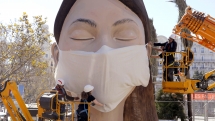 | The new Coronavirus (COVID-19) Is Now Officially A Pandemic, WHO declares It's the first time the WHO has called an outbreak a pandemic since the H1N1 "swine flu" in 2009. |
In topics
Recommended
 World
World
India reports 9 Pakistani Aircraft Destroyed In Operation Sindoor Strikes
 World
World
Thailand Positions Itself As a Global Wellness Destination
 World
World
Indonesia Accelerates Procedures to Join OECD
 World
World
South Korea elects Lee Jae-myung president
Popular article
 World
World
22nd Shangri-La Dialogue: Japan, Philippines boost defence cooperation
 World
World
Pakistan NCRC report explores emerging child rights issues
 World
World
"India has right to defend herself against terror," says German Foreign Minister, endorses Op Sindoor
 World
World


